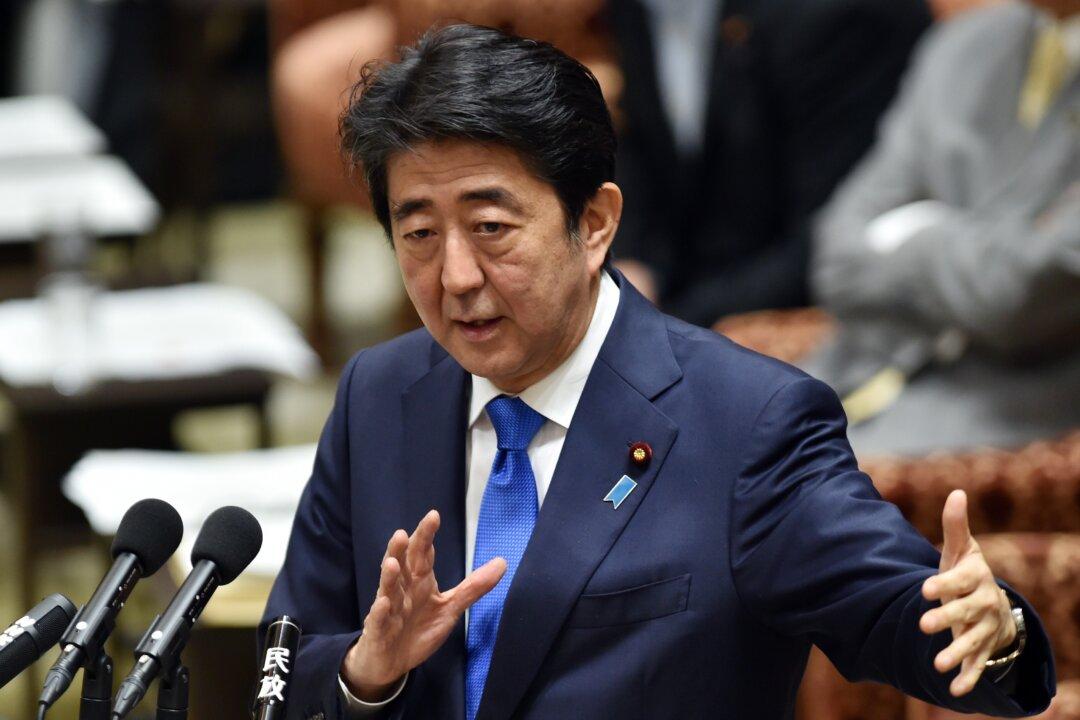Japan’s GDP fell 1.6 percent annualized during the second quarter ending in June. This could mark Japan’s fifth recession since the great financial crisis of 2008 but people should stop questioning Prime Minister Shinzo Abe’s growth policies. Instead they should realize those policies have failed and Japan should move on to something better.
Abe, who came to power in late 2012, has implemented monetary easing and pro-growth policies to spur inflation and economic growth in Japan. Today he is collecting the shambles of his failed experiment.
By printing record amounts of money and pushing Japan’s debt load past 1 quadrillion yen ($8 trillion) inflation was supposed to rise to 2 percent and get consumers to start spending, thereby increasing GDP growth. A lower yen was also supposed to promote exports.
While the policy succeeded in devaluing the yen 60 percent against the dollar since Abe took office, exports are faltering, consumers are spending less, and the country is again teetering on the verge of another recession.





